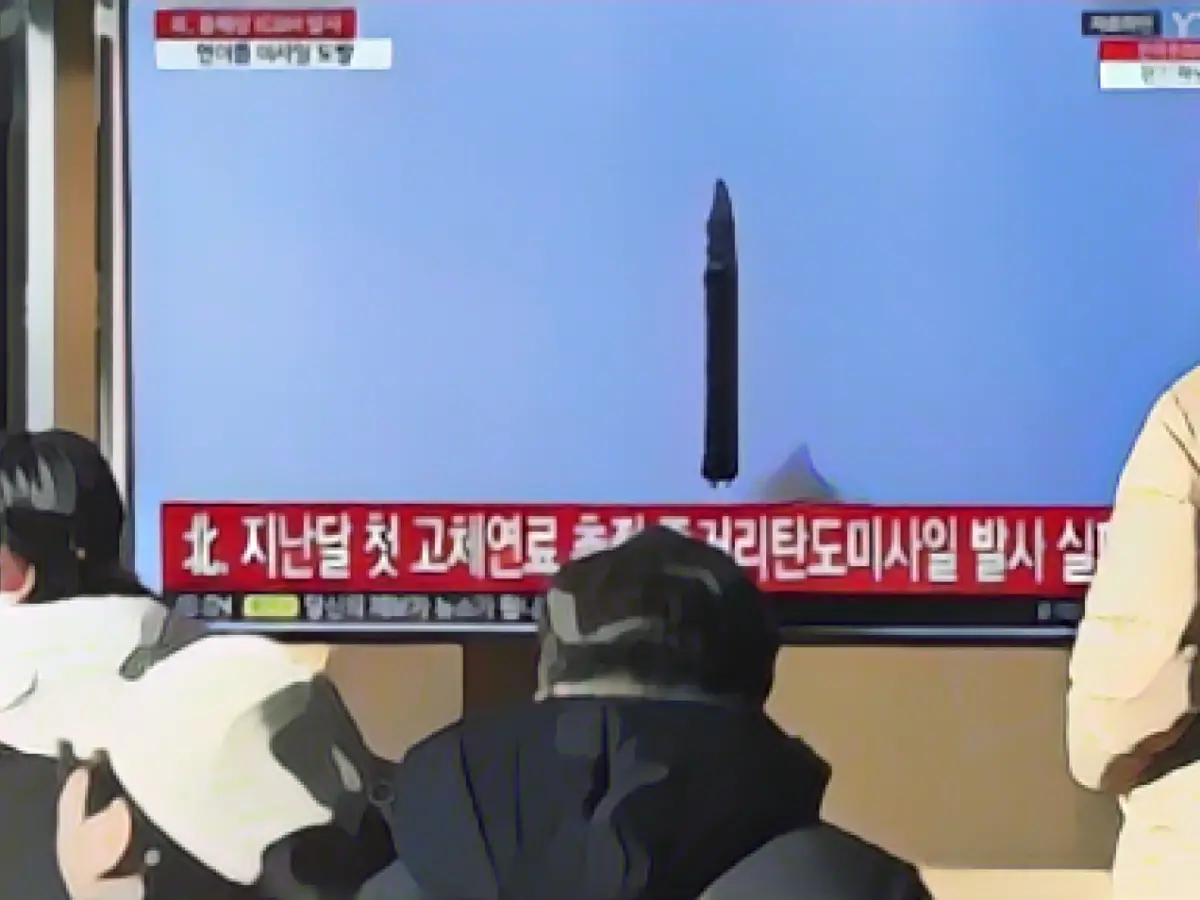North Korea's Military Showcase: Another Long-Range Missile Test
Once again, North Korea has made headlines after launching a long-range ballistic missile. According to reports from both South Korean and Japanese sources, the missile traveled approximately 1,000 kilometers before crashing into the Sea of Japan, also known as the East Sea. This marks the latest in a series of missile tests from Pyongyang, raising international tensions and concerns.
The missile was reportedly fired from the greater Pyongyang area and flew for around 73 minutes before meeting its demise in the waters. In response to the test, South Korea's military immediately raised its alert level, while Japan expressed their strong opposition to North Korea's actions.
The international community has grown increasingly frustrated with North Korea's ongoing defiance of UN Security Council resolutions, which call for an immediate halt to all nuclear and missile tests. The most recent test comes just days after North Korea demonstrated a short-range ballistic missile, highlighting its commitment to developing its military capabilities.
Since the early 2000s, North Korea has carried out six nuclear tests, the latest of which occurred in 2017. While the country has faced international sanctions in response to its nuclear program, it has continued to prioritize its military might.
Looking Deeper
North Korea's latest missile test raises questions about the country's intentions and its ability to develop advanced missile technology. The use of solid-fuel missiles, like the Hwasong-19, poses significant challenges to preemptive detection and interception efforts, making it harder for adversaries to respond in real-time.
Furthermore, the potential for North Korea to deliver nuclear payloads with these missiles increases the threat to the US mainland and other major powers in the region, such as South Korea and Japan. The concern is that North Korea's military advances will shift the power balance in the Korean Peninsula, potentially leading to a breach of peace.
The international community's response to North Korea's latest missile test is ongoing. The UN Security Council has condemned the test as a violation of its resolutions, and discussions are underway for further significant measures against North Korea.
Meanwhile, the German Government has strongly condemned the test, calling for dialogue to persuade Pyongyang to abandon its nuclear and missile program. The US, under the Trump Administration, has signaled an openness to reviving dialogue with North Korea, viewing it as an opportunity to deescalate tensions and promote peace on the Korean Peninsula.
As the international community grapples with North Korea's missile tests, it's important to remember that diplomacy and dialogue remain key tools for resolving this complex and challenging situation. While the threat posed by North Korea's military capabilities is real, it's crucial to maintain a calm and measured approach to avoid escalating tensions further.








